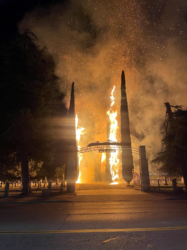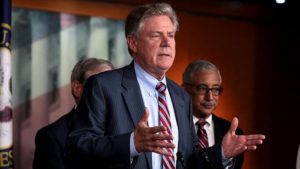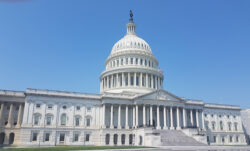Armenian Prime Minister Nikol Pashinyan Adresses UN General Assembly

NEW YORK — Speaking at the UN General Assembly session on September 25 in New York, Armenian Prime Minister Nikol Pashinyan addressed democratic advancement in Armenia, the Karabakh conflict resolution, relations with Turkey and regional issues.
PM Pashinyan said Azerbaijan was unwilling to resolve the Nagorno-Karabakh conflict. He said the peaceful settlement of the conflict is of key importance to the stability and security of the region.
“From the very first day of my tenure I have been taking steps in this context. For this purpose, I made a statement that any settlement of the Nagorno-Karabakh conflict should be acceptable to the peoples of Armenia, Nagorno-Karabakh and Azerbaijan,” Pashinyan said. He said he was the first Armenian leader to express a similar position.
“I was severely criticized in my country for such a proposal, which equals the three parties to the conflict. Nevertheless, I believe that this is the key to a peaceful resolution of the conflict, as it suggests an opportunity for compromise, mutual respect and balance,” said Pashinyan.
“To move forward, I expected a similar statement from Azerbaijan. However, the Azerbaijani authorities adhere to their own position, striving for such a solution to the Karabakh conflict that would be acceptable only to the people of Azerbaijan. This means that the Azerbaijani authorities do not intend to resolve this conflict,” said Pashinyan.
On Turkey, Pashinyan said it remains a serious threat to Armenia’s security. “By refusing to establish diplomatic relations and overtly assisting Azerbaijan against Armenia and Nagorno Karabakh, Turkey remains a serious threat to Armenia and the Armenian people, who experienced the deep tragedy of genocide and continue of the 20th century and continue to face the denial of truth and justice,” the Prime Minister stated.
The Prime Minister said that the various degrees of tension existing in the relations among Armenia’s neighbors and strategic partners put the country in a very challenging position.
“Russia is our key strategic partner and ally. Georgia and Iran are our strategic neighbors. We have a strategically significant agenda and partnership with the United States, the European Union and its member states. We observe with concern sets of disagreement among our friends, strategic partners and allies,” Nikol Pashinyan stated.
He noted that “these realities put significant challenges to us, because we face a persistent risk of not being correctly understood by some of our friends or, even worse, all of them.”
“We are doing our best to remain a reliable partner and a good friend for all of them without damaging our relations with any of them without developing relations with one of them at the expense of others,” Pashinyan continued.
He pledged that Armenia will spare no efforts to make the region’s geopolitical environment safer.
Addressing domestic issues, Pashinyan accused Armenia’s former rulers of trying to obstruct his anti-corruption efforts and spreading “fake news.”
“Our democratic transformation and zero tolerance policy against corruption are not without resistance from former corrupted elites,” Pashinyan said in a speech. “Their vast financial resources are directed at escaping justice. Our government has not pursued a single case of redistribution of property. At the same time our resolve to press with reforms and justice is unwavering.”
“Our mass media is completely free from government control or interference,” he went on. “However, some of them are not free from meddling and control from the same old circles of former government, fabricating fake news and spreading mistrust in the public about the origins and purposes of the Velvet Revolution.”
Pashinyan also said that his government is committed to “advance democracy and reforms” but needs greater international assistance in that endeavor.
“We need to have access to international best practices to save time and resources,” he said. “We need to avoid the mistakes previously made by other democracies to make our democratic reforms more fruitful and efficient.”





